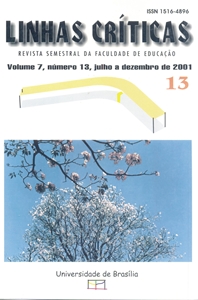A infância - realidade ou utopia?
DOI:
https://doi.org/10.26512/lc.v7i13.2897Keywords:
História;, Educação;, Infância;, Realidade;, UtopiaAbstract
A Infância terá sido um conceito criado de forma social. O "homem primitivo" compreendia que a criança não era um adulto, mas isso não modificava suas atitudes com a criança. Na Idade Antiga existiu o infanticídio e na Idade Média desconhecia-se o conceito de "Infância" - tese central de Ariès. Para Paulo Ghiraldelli Junior, a noção de Infância é moderna; o pós-modernismo não necessita dessa noção. Estamos próximos dessa abordagem. A Infância foi um conceito desenvolvido por pedagogos como J.-J. Rousseau, continuada pela Psicologia (S. Freud ou J. Piaget); a partir do estudo da criança como ser em maturação deixou de se discutir se a criança é ou não um "ser humano em miniatura". Hoje, com a chamada "Globalização", encontramos uma definição política de Infância que deixa de existir para os países pobres, porque existe apenas o produtor de bens. Assim, estamos muito longe de ter a Infância como período feliz da vida das pessoas. Inclusivamente existem crianças-soldados. Todos os países são cúmplices desta situação, que comporta até o infanticídio feminino na China.
Downloads
Downloads
Published
How to Cite
Issue
Section
License
Copyright (c) 2016 Linhas Críticas

This work is licensed under a Creative Commons Attribution 4.0 International License.
Authors who publish in this journal agree to the following terms:
-Authors maintains the copyright and grants the journal the right of first publication, the work being simultaneously licensed under the Creative Commons Attribution License which allows the sharing of the work with recognition of the authorship of the work and initial publication in this journal.
- Authors are authorized to enter into additional contracts separately, for non-exclusive distribution of the version of the work published in this journal (eg publish in institutional repository or as a book chapter), with acknowledgment of authorship and initial publication in this journal.
-Authorers are allowed and encouraged to publish and distribute their work online (eg in institutional repositories or on their personal page) at any point before or during the editorial process, as this can generate productive changes as well as increase the impact and the citation of published work (See The Effect of Free Access).



